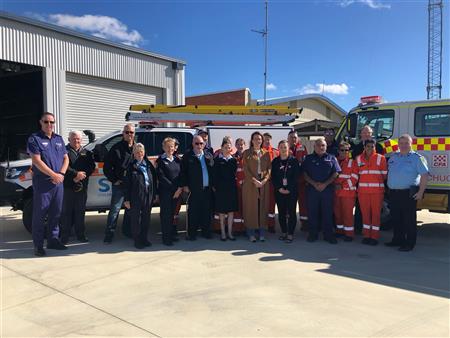Electromagnetic interference can prove detrimental to data communication in medical technologies. Therefore, new ways are needed to tackle EMI issues in the critical healthcare technologies of today and the future. To help address these issues, the ETERNITY project has received 4 million euro in Horizon 2020 funding. The project is coordinated by Eindhoven University of Technology researcher Anne Roc’h, and there’s an open call for 14 PhD positions.
Electromagnetic interferences (EMI), such as the buzzing sound heard on a loudspeaker when a mobile phone is answered nearby, are becoming much more than just an annoyance.
The number of reported incidents in hospitals related to EMI has escalated in recent years, especially in wireless technologies. There is a need to address EMI in medical environments, particularly when it can affect equipment used in life support or key biometric monitoring.
Funding
Evidently, there is an urgent need for medical technologies that are not susceptible to EMI, regulation is also required to ensure that these risks are properly considered. In Europe, a regulation has been introduced to ensure that a new risk assessment methodology is implemented to mitigate EMI risks in medical products. Innovative design solutions are needed given that medical technologies are rapidly changing.
With the advent of 5G and Internet of Things (IoT) devices, monitoring, prevention, and care are increasingly taking place away from the traditional hospital environment, and even on the move. Examples include personalised wearables, bio-sensing platforms, and portable life-support systems.
With the principle aim of including EMI risk management approaches in the design of future medical devices, the European Training Network on Electromagnetic Risk in Medical Technology (ETERNITY) has been 4 million euro by the European Marie Skłodowska-Curie subsidy program Horizon 2020. Anne Roc’h from the Department of Electrical Engineering and Centre for Care and Cure Technology (C3TE) will act as coordinator of ETERNITY.

Open call for positions
The consortium behind ETERNITY is made up of several European universities including TU/e, KU Leuven, University of Twente, and UPC in Barcelona, as well as companies such as Philips Medical, Ficosa from Spain, and Plux from Portugal.
“This project will help Europe to take the lead in an early shift in the design approach for our future medical technologies,” says Roc’h. “Medical devices need to become more resilient with regards to EMI, particularly when the same devices will be used in hospitals and at home in the future. This initiative is urgently required.”
ETERNITY will officially start on March 1st 2021, but there is already an open call for young researchers to join the project. “We are now hiring for 14 PhD positions, and seek applications from young researchers and students who are due to obtain their masters degree by the summer of 2021,” says Roc’h.
The deadline for applying for the PhD positions is November 30th 2020.
If you want more information on the ETERNITY project, visit the official website for the project: eternity-project.eu. Details of the application process and PhD positions can be found here.
About Horizon 2020
Horizon 2020 is the biggest EU Research and Innovation programme ever with nearly €80 billion of funding available over 7 years (2014 to 2020) – in addition to the private investment that this funding will attract. It promises more breakthroughs, discoveries and world-firsts by taking great ideas from the lab to the market.
The ETERNITY project has received funding from the European Union’s EU Framework Programme for Research and Innovation Horizon 2020 under Grant Agreement No. 955.186.








